
Vadodara: The Cultural Capital of Gujarat
Vadodara, also known as Baroda, is a city that harmoniously blends rich history with modernity. As the cultural capital of Gujarat, Vadodara is famed for its splendid palaces, parks, temples, and museums. One of the city's most iconic landmarks is the Laxmi Vilas Palace, a magnificent structure that is four times the size of Buckingham Palace. The palace is still the residence of the royal family and is surrounded by lush gardens, making it a must-visit for any traveler. The city is also home to the Baroda Museum and Picture Gallery, which houses an impressive collection of artifacts, including Egyptian mummies and Akota bronzes. For nature enthusiasts, Sayaji Baug is a 113-acre garden that offers a zoo, a planetarium, and a flower clock, making it an ideal spot for a leisurely day out. Vadodara's vibrant cultural scene is best experienced during the Navratri festival, which is celebrated with great zeal and fervor. The city comes alive with music, dance, and traditional garba performances, offering visitors a unique glimpse into Gujarati culture. Additionally, Vadodara is known for its educational institutions, including the prestigious Maharaja Sayajirao University of Baroda, which adds a youthful and dynamic vibe to the city. Food lovers will delight in Vadodara's culinary offerings, which range from traditional Gujarati thalis to street food delights like 'sev usal' and 'khaman'. The city is also a great base for exploring nearby attractions such as the UNESCO World Heritage site of Champaner-Pavagadh Archaeological Park, which is just a short drive away.
Local tips in Vadodara
- Best time to visit is during Navratri for a unique cultural experience.
- Wear comfortable shoes; many attractions involve a lot of walking.
- Local transportation options include auto-rickshaws and buses; taxis are less common.
- Try the local street food, but ensure it's from a clean and reputable stall.
- Carry a water bottle and stay hydrated, especially during summer.
Neighbourhoods in Vadodara
Vadodara: The Cultural Capital of Gujarat
Vadodara, also known as Baroda, is a city that harmoniously blends rich history with modernity. As the cultural capital of Gujarat, Vadodara is famed for its splendid palaces, parks, temples, and museums. One of the city's most iconic landmarks is the Laxmi Vilas Palace, a magnificent structure that is four times the size of Buckingham Palace. The palace is still the residence of the royal family and is surrounded by lush gardens, making it a must-visit for any traveler. The city is also home to the Baroda Museum and Picture Gallery, which houses an impressive collection of artifacts, including Egyptian mummies and Akota bronzes. For nature enthusiasts, Sayaji Baug is a 113-acre garden that offers a zoo, a planetarium, and a flower clock, making it an ideal spot for a leisurely day out. Vadodara's vibrant cultural scene is best experienced during the Navratri festival, which is celebrated with great zeal and fervor. The city comes alive with music, dance, and traditional garba performances, offering visitors a unique glimpse into Gujarati culture. Additionally, Vadodara is known for its educational institutions, including the prestigious Maharaja Sayajirao University of Baroda, which adds a youthful and dynamic vibe to the city. Food lovers will delight in Vadodara's culinary offerings, which range from traditional Gujarati thalis to street food delights like 'sev usal' and 'khaman'. The city is also a great base for exploring nearby attractions such as the UNESCO World Heritage site of Champaner-Pavagadh Archaeological Park, which is just a short drive away.
When is the best time to go to Vadodara?
Iconic landmarks you can’t miss
Sayaji Baug Zoo
Discover the enchanting Sayaji Baug Zoo in Vadodara, a lush sanctuary of wildlife and nature, perfect for families and nature enthusiasts alike.
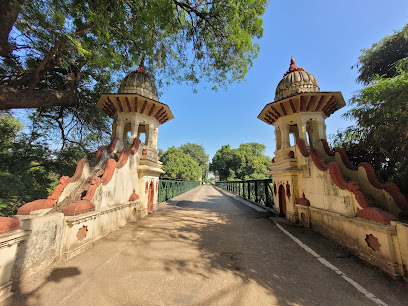
Laxmi Vilas Palace
Explore the grandeur of Laxmi Vilas Palace, a stunning heritage site in Vadodara showcasing royal history and Indo-Saracenic architecture.

Mandvi Gate
Explore the majestic Mandvi Gate, a historical landmark in Vadodara, where the past meets vibrant local culture.
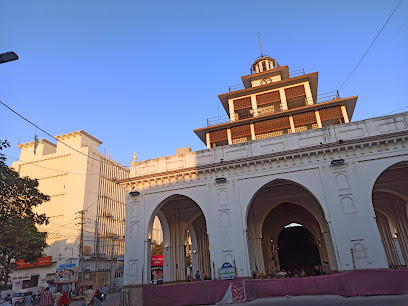
Kirti Stambh
Discover the architectural beauty and historical significance of Kirti Stambh, a must-visit landmark in Vadodara, Gujarat.
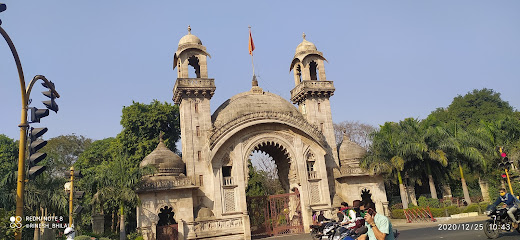
Baroda Museum & Picture Gallery
Explore the Baroda Museum & Picture Gallery, a cultural gem in Vadodara showcasing art, history, and architectural beauty in Gujarat.
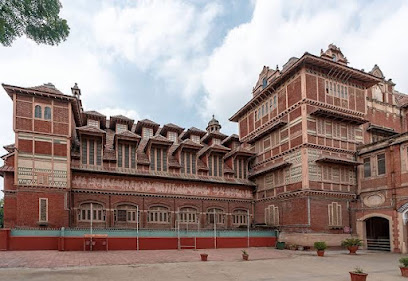
EME Temple
Explore the architectural marvel of EME Temple, where modern design meets ancient spirituality in the heart of Vadodara.
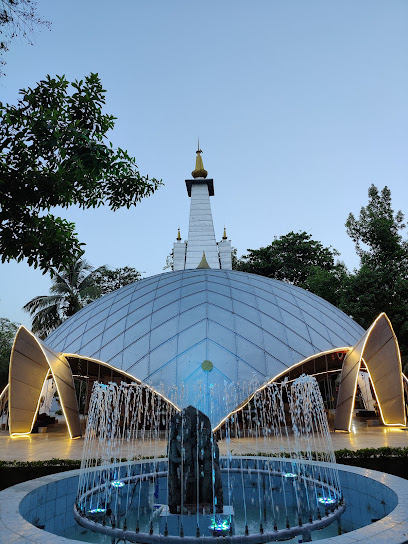
Vidhyadhar Vaav (Stepwell) at Sevasi
Explore the historical marvel of Vidhyadhar Vaav, a magnificent stepwell in Sevasi, Vadodara, showcasing exquisite architecture and rich heritage.
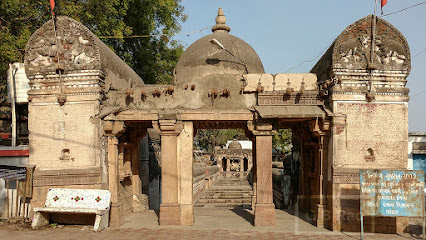
Akota Bridge
Discover the enchanting Akota Bridge in Vadodara, Gujarat, where stunning architecture meets rich cultural heritage amidst serene natural beauty.
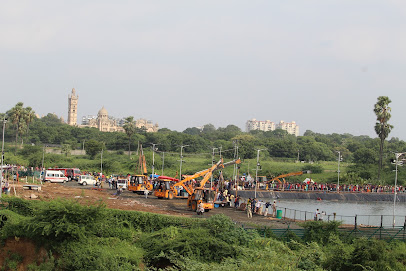
Nimeta Garden
Explore the lush landscapes and vibrant flora of Nimeta Garden, a botanical haven in Gujarat, perfect for relaxation and nature appreciation.
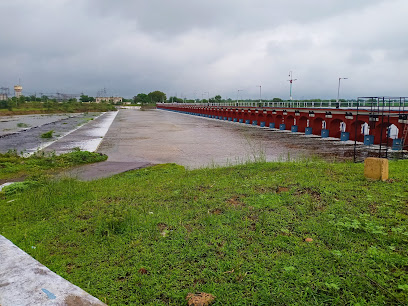
Maharaja Fateh Singh Museum
Explore the artistic heritage of Gujarat at the Maharaja Fateh Singh Museum, showcasing stunning artworks and historical treasures in Vadodara.

kirti mandir in vadodara
Explore Kirti Mandir in Vadodara - a historical landmark showcasing exquisite architecture and deep cultural significance in the heart of Gujarat.
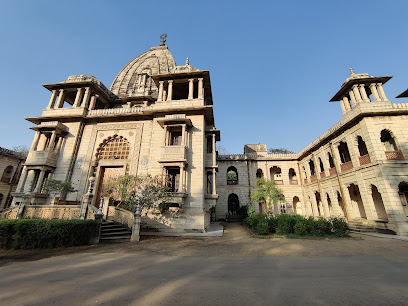
Meer Nawab Shah Saiyed Qutubuddin Tomb
Explore the stunning architecture and serene gardens of Meer Nawab Shah Saiyed Qutubuddin Tomb in Vadodara, a historical gem of Mughal heritage.
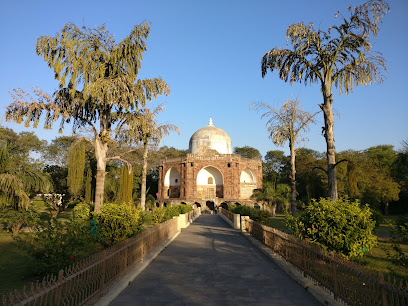
Raopura Tower
Discover the architectural marvel of Raopura Tower in Vadodara, a historical landmark reflecting the rich culture and heritage of Gujarat.
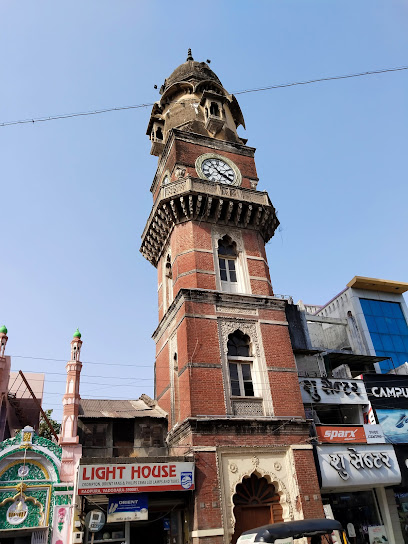
Kamati Baug Vadodra
Discover the tranquil oasis of Kamati Baug, a lush garden park in Vadodara, perfect for relaxation and family fun amidst vibrant nature.
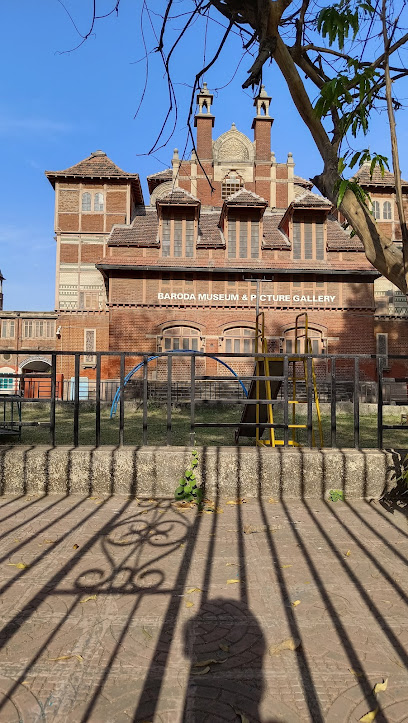
Tambekar Wada
Uncover the enchanting history and architectural beauty of Tambekar Wada in Vadodara, a hidden gem for cultural enthusiasts and explorers.
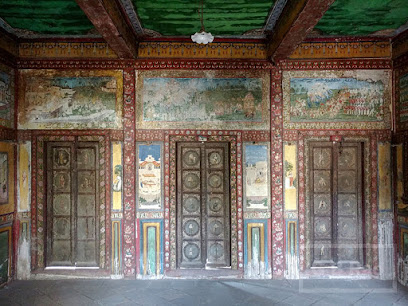
Unmissable attractions to see
Sayaji Baug Zoo
Discover the vibrant wildlife and serene beauty of Sayaji Baug Zoo, a perfect family-friendly destination in Vadodara, Gujarat.
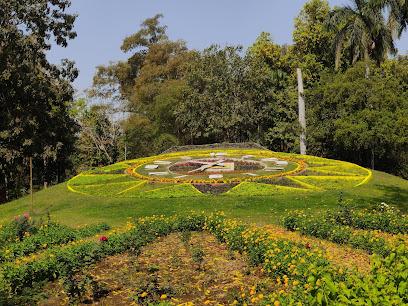
Laxshmi Vilas Palace
Discover the majestic Laxshmi Vilas Palace, a breathtaking heritage site in Vadodara, showcasing India's royal architectural splendor and rich history.
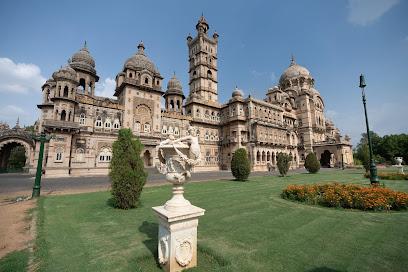
Shree Mahakali Mataji Temple, Pavagadh
Discover the enchanting Shree Mahakali Mataji Temple in Pavagadh, a sacred site perched on a hill, offering breathtaking views and rich cultural experiences.
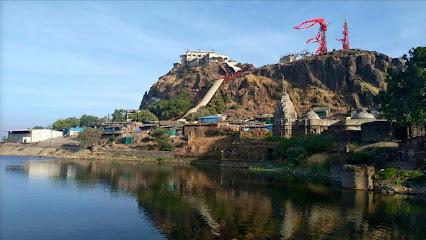
Kirti Stambh
Explore Kirti Stambh, a historical landmark in Vadodara, Gujarat, showcasing stunning architecture and rich cultural heritage.
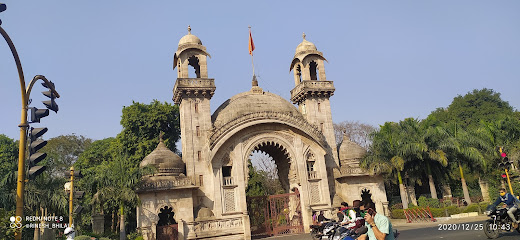
Baroda Museum
Explore the artistic and cultural treasures of Vadodara at the Baroda Museum, where history meets creativity in a beautifully curated space.
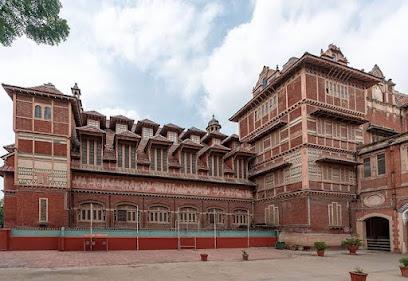
Champaner-Pavagadh Archaeological Park
Uncover the historical gems of Champaner-Pavagadh Archaeological Park, a UNESCO World Heritage Site rich in culture and breathtaking landscapes.
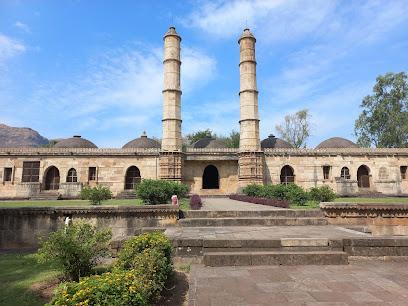
Ajwa Garden
Explore the lush landscapes and vibrant attractions of Ajwa Garden, Vadodara's premier amusement park and tourist destination.
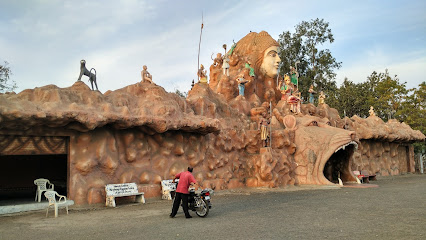
Sayaji Garden
Experience tranquility and family fun at Sayaji Garden, Vadodara's lush oasis featuring a zoo, museum, and serene walking paths.
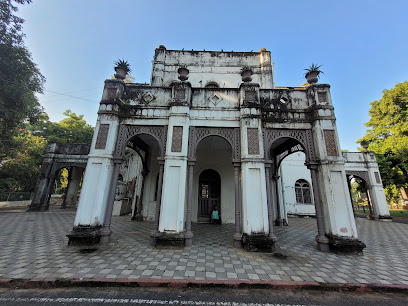
EME Temple
Explore the EME Temple in Vadodara, a stunning blend of modern architecture and spiritual heritage, perfect for travelers seeking cultural immersion.
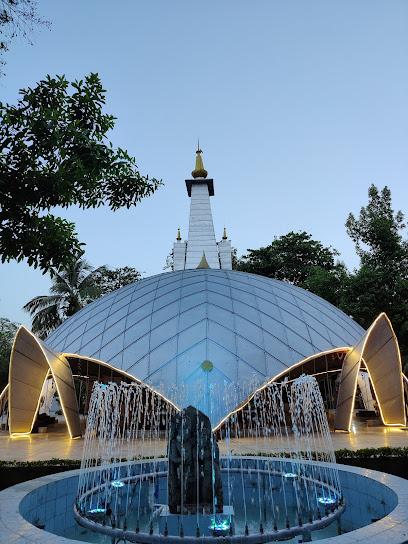
EME Temple
Explore the EME Temple in Vadodara, a stunning architectural marvel and spiritual sanctuary dedicated to Lord Shiva, reflecting India's rich cultural heritage.
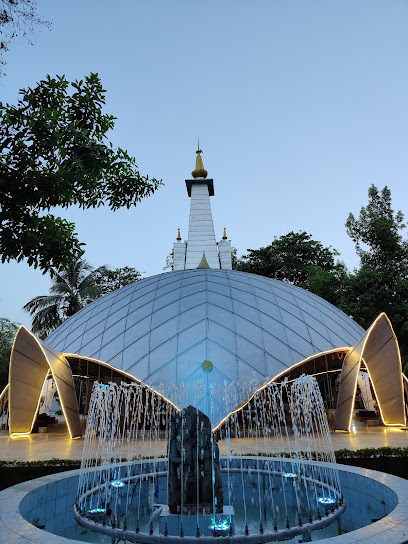
Tapovan Temple Vadodara
Experience tranquility and spirituality at Tapovan Temple in Vadodara, Gujarat, a stunning Hindu temple that invites peace and reflection.
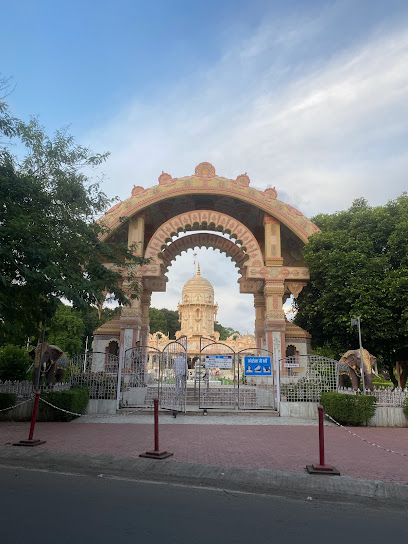
Vidhyadhar Vaav (Stepwell) at Sevasi
Explore Vidhyadhar Vaav in Sevasi, an architectural gem of ancient India showcasing stunning stepwell design and rich historical significance.
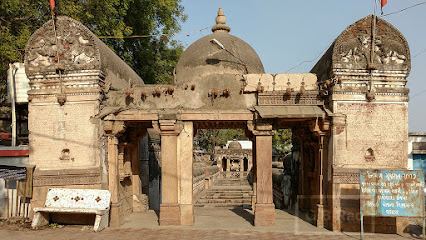
Nimeta Garden
Discover the serene beauty of Nimeta Garden in Gujarat, a botanical paradise perfect for nature lovers and families seeking tranquility.
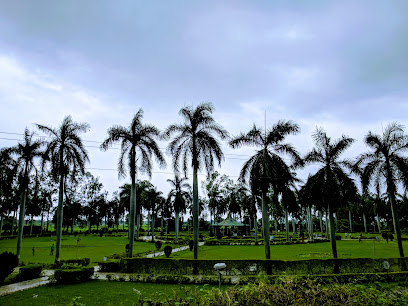
Kirti Mandir
Explore Kirti Mandir in Vadodara, a historical landmark showcasing exquisite architecture and the rich legacy of Maharaja Sayajirao Gaekwad III.
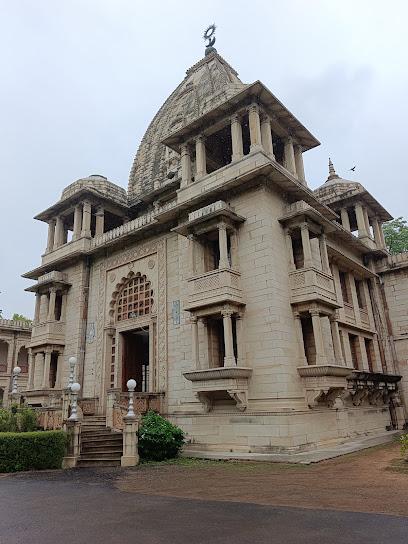
Meer Nawab Shah Saiyed Qutubuddin Tomb
Explore the stunning architecture and rich history of Meer Nawab Shah Saiyed Qutubuddin Tomb, a must-visit historical landmark in Vadodara.
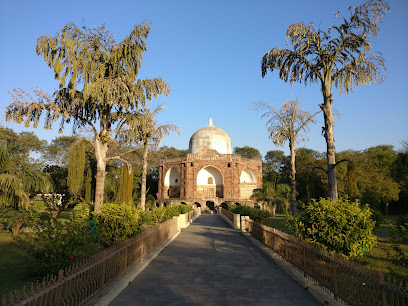
Essential places to dine
Barbeque Nation - Vadodara - Natubhai Circle
Experience the ultimate barbecue buffet at Barbeque Nation in Vadodara – where every bite is a celebration of Indian flavors.
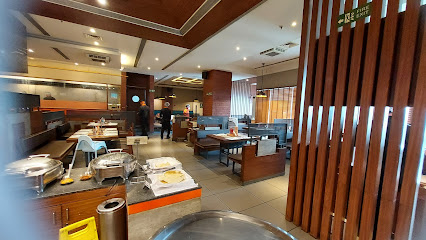
Jassi De Parathe
Discover authentic Punjabi flavors at Jassi De Parathe - Vadodara's favorite vegetarian restaurant serving mouth-watering dishes.
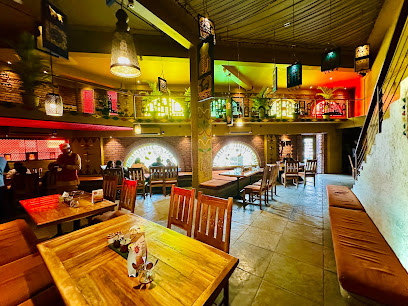
Indian spice restaurants & banquet hall Subhanpura
Discover authentic Indian flavors at Indian Spice Restaurant & Banquet Hall in Vadodara - perfect for dining and celebrations.
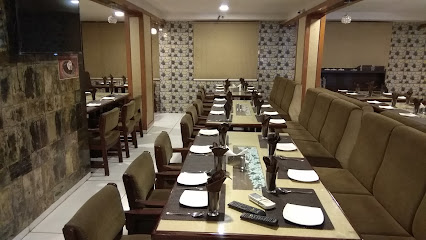
22nd Parallel
Experience authentic South Indian vegetarian cuisine at 22nd Parallel in Vadodara – where every dish tells a story.
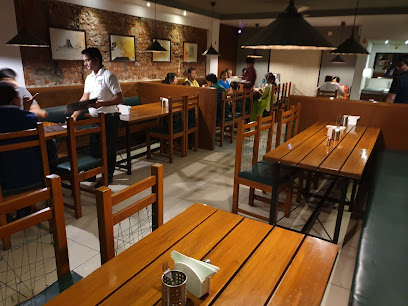
Havmor Restaurant
Experience the delightful blend of fast food and exquisite ice cream at Vadodara's beloved Havmor Restaurant.
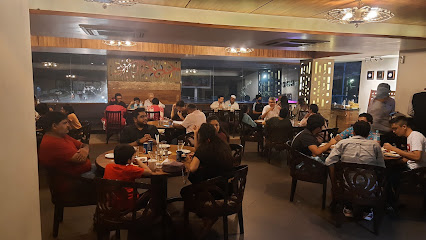
Old School Rest-Story
Experience authentic Indian flavors at Old School Rest-Story in Vadodara - where tradition meets taste in a vibrant setting.
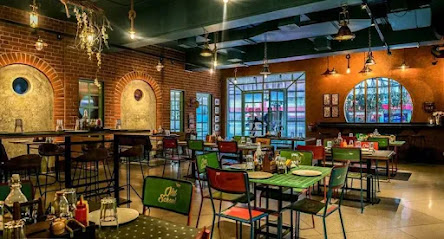
Sasumaa Gujarati Thali - Alkapuri
Experience authentic Gujarati flavors at Sasumaa Gujarati Thali - a must-visit vegetarian restaurant in Alkapuri for every food lover.
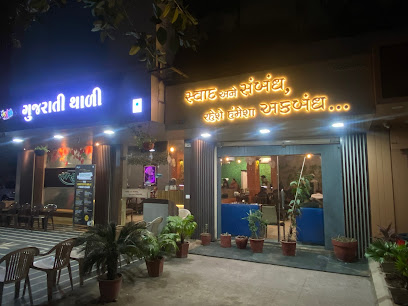
The Secret Kitchen
Experience a fusion of flavors at The Secret Kitchen in Vadodara – where modern Indian cuisine meets global tastes.
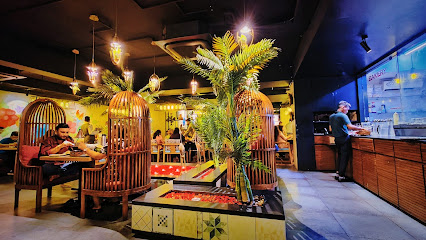
Blue Lagoon's Restaurant
Experience the vibrant flavors of Punjabi cuisine at Blue Lagoon's Restaurant in Vadodara - where every meal is a celebration of taste.
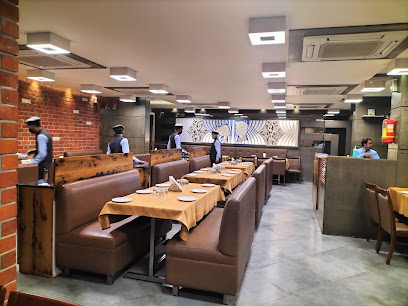
Stellar Kitchen - Best Restaurant In Vadodara | Restaurant with Live Music | Fine-Dine Restaurant Vadodara
Experience fine dining at Stellar Kitchen in Vadodara with exquisite cuisine and enchanting live music.
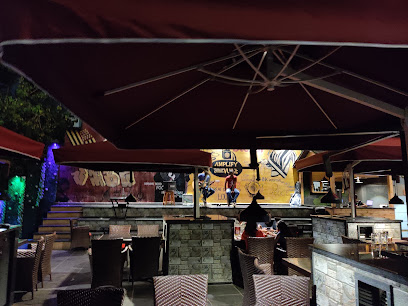
Mirch Masala Restaurant
Experience authentic Indian and Punjabi cuisine at Mirch Masala Restaurant in Vadodara – where flavors come alive!
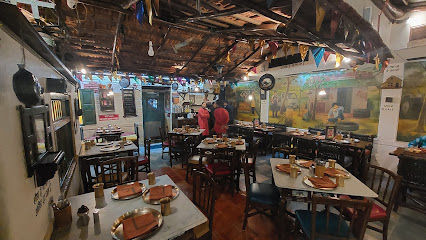
Sasumaa's Multi Cuisine Restaurant & Gujarati Thali
Experience authentic Gujarati cuisine at Sasumaa's Multi Cuisine Restaurant & Gujarati Thali in Vadodara - where every meal is a flavorful journey.
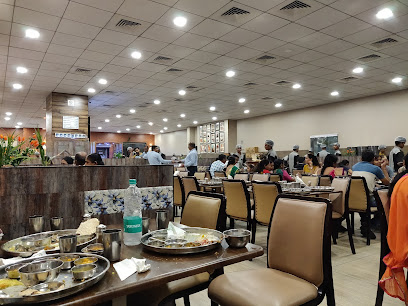
Laxmi Garden Restaurant and Resort
Discover exquisite vegetarian cuisine in a tranquil garden setting at Laxmi Garden Restaurant and Resort in Vadodara.
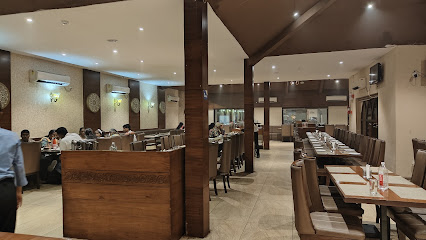
The Morsel Restaurant
Experience a delightful fusion of Indian and Chinese cuisines at The Morsel Restaurant in Vadodara - where every bite tells a story.
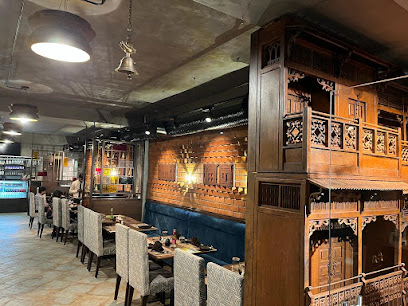
Retro Bistro : The Fine Multi Cuisine Restaurant ( Vadodara )
Discover exquisite multi-cuisine delights at Retro Bistro in Vadodara - where every meal is a celebration of flavor and hospitality.
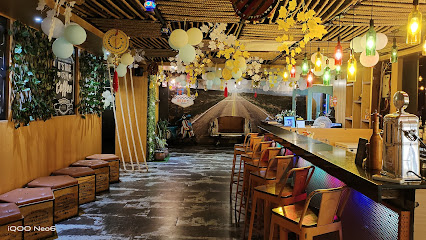
Markets, malls and hidden boutiques
The Shoppe
Explore The Shoppe in Vadodara for unique gifts and handcrafted treasures that embody the essence of Indian craftsmanship.
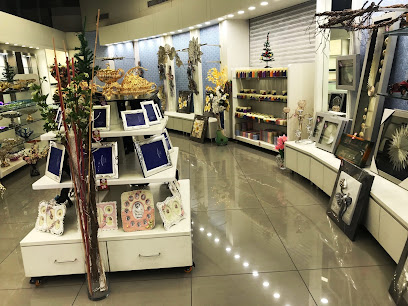
Gurukrupa Gifts & Toys - Best Toy Shop, Gift Shop, Toy Shop, Toy Shop Near Me, Gift Shop Near Me
Explore the best of Vadodara at Gurukrupa Gifts & Toys, where every gift and toy is a doorway to joy and memories.
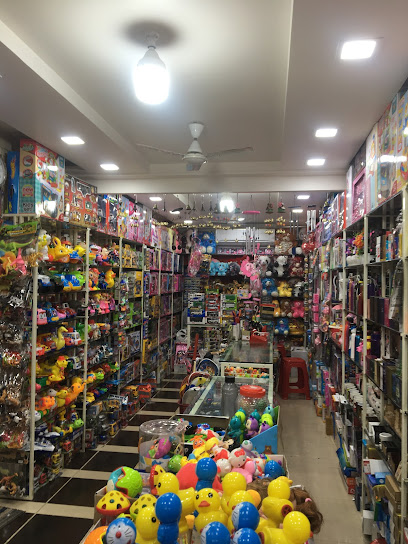
Tamrapatra Gift Shop & Home Décor
Discover unique gifts and handcrafted decor at Tamrapatra Gift Shop & Home Décor, a cultural gem in Vadodara, Gujarat.
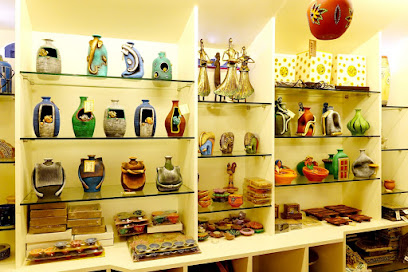
Lifestyle Stores
Explore the ultimate shopping destination at Lifestyle Stores in Vadodara, where fashion meets convenience and style for everyone.
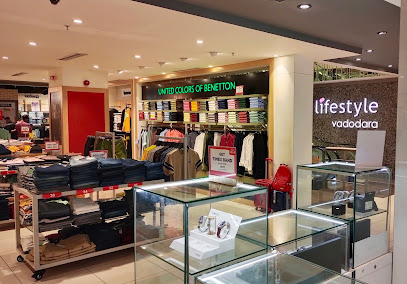
Sejal Handicrafts
Explore the charm of Sejal Handicrafts in Vadodara, where traditional women's clothing meets exquisite home decor, showcasing Gujarat's rich artistry.
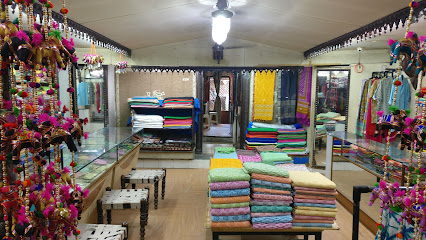
Sai Gallery - pooja store Krishna dress, balgopal dress, Jhula, shringar Gift shop, god idol ( murti)
Explore Sai Gallery in Vadodara for an enchanting selection of spiritual gifts, religious idols, and traditional attire that celebrate India's rich heritage.
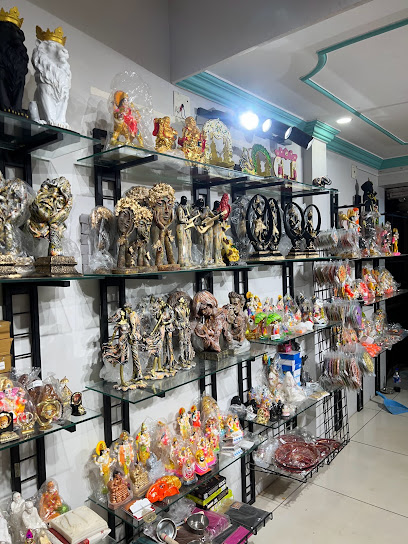
Baroda Variety Shop
Explore a treasure trove of antiques, gifts, and unique finds at Baroda Variety Shop in Vadodara, Gujarat.
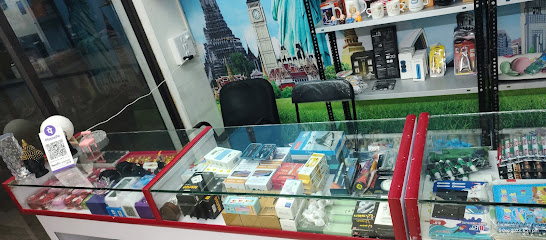
US Dollar Store - Shanti Digital Lifestyle
Explore the charm of Vadodara with a visit to US Dollar Store - Shanti Digital Lifestyle, your one-stop shop for unique gifts and everyday essentials.
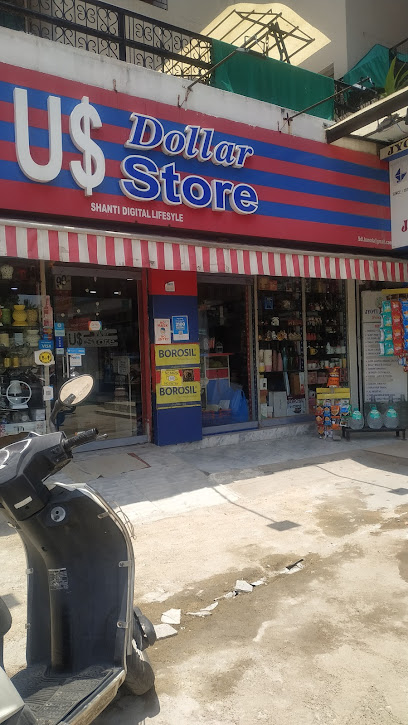
Patel Unique Shop
Discover the eclectic charm of Patel Unique Shop in Vadodara, where local culture meets everyday essentials in a delightful shopping experience.
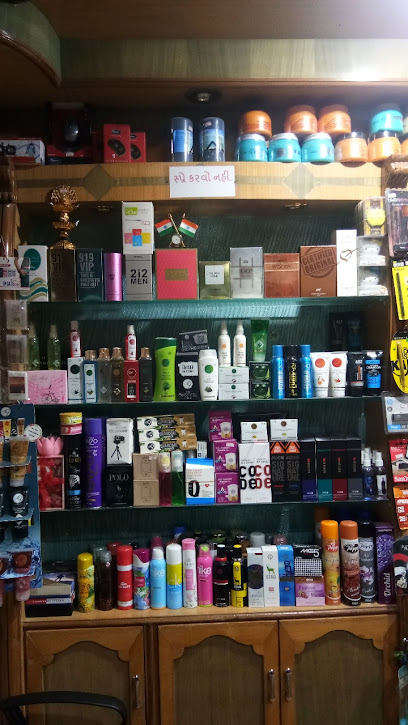
Mumbai Market
Explore Mumbai Market in Vadodara for a unique shopping experience filled with exquisite gift items, souvenirs, and local treasures.
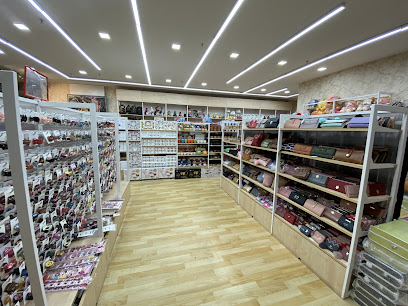
Vandana's Collection (વંદના'સ કૉલેકશન)
Explore a unique blend of antiques, art, and handicrafts at Vandana's Collection in Vadodara, perfect for memorable gifts and souvenirs.
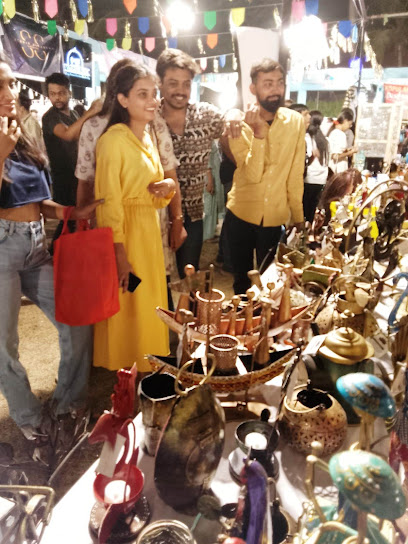
Fashion Cube Vadodara-Best Women's Clothing,Designer Wear Kurties Chaniya Choli,boutique,Dresses,Palazzo suits,sarara
Explore Fashion Cube Vadodara for exquisite women's designer wear, unique kurties, and stunning ethnic clothing in a chic boutique setting.
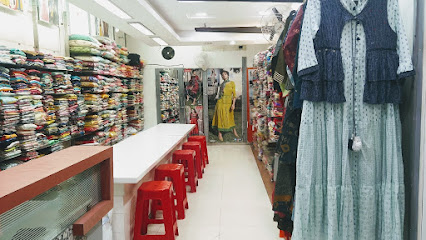
The variety shopee
Explore The Variety Shopee in Vadodara for unique gifts and accessories, from stylish belts to delightful toys, all in one vibrant location.
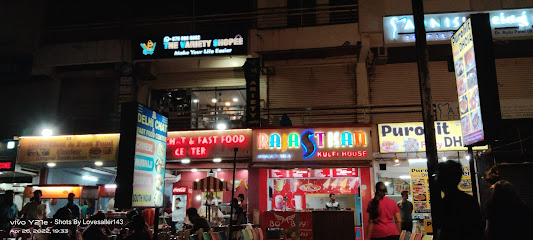
Unique Variety Wala
Discover a delightful variety of local handicrafts and unique souvenirs at Unique Variety Wala, Vadodara's charming variety store.
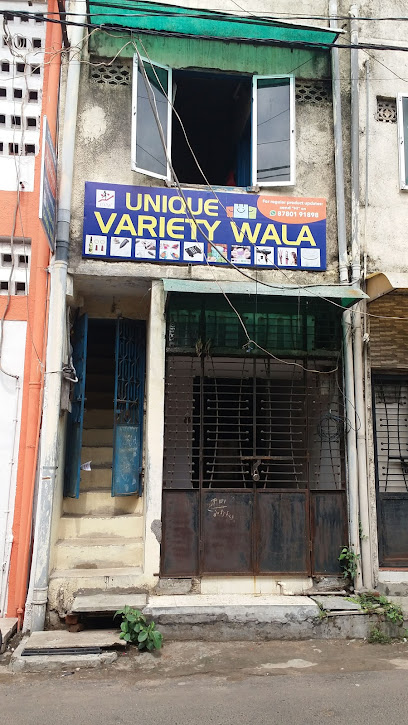
Unique Gift Shop
Explore Vadodara's Unique Gift Shop for handcrafted treasures, stylish leather goods, and memorable souvenirs reflecting Gujarat's rich culture.

Essential bars & hidden hideouts
The Brewery.
Discover the best of Vadodara's craft beer and gourmet cuisine at The Brewery, a top-rated brewpub experience.
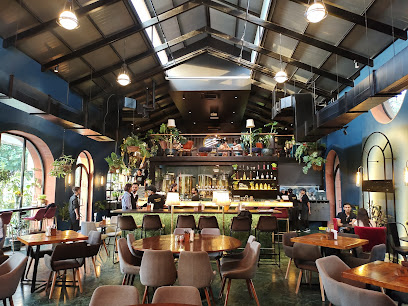
Cloud 3 Disco Lounge
Discover Vadodara's vibrant nightlife at Cloud 3 Disco Lounge, where great drinks and lively music create unforgettable experiences.
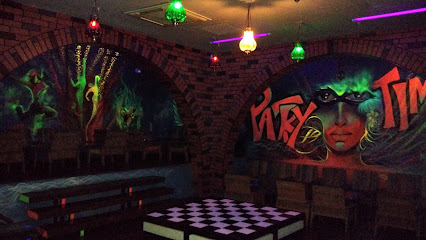
Happy Hour
Experience a vibrant culinary journey at Happy Hour in Vadodara, where Italian, Mediterranean, and Mexican cuisines come alive in a delightful atmosphere.
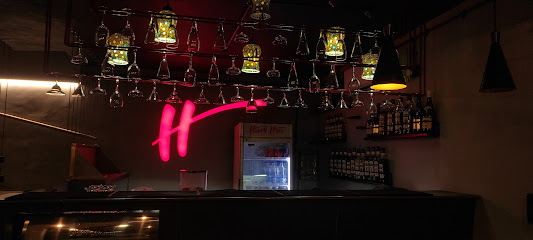
MN soda shop
Discover the vibrant atmosphere and refreshing drinks at MN Soda Shop, a must-visit bar in Vadodara, Gujarat.
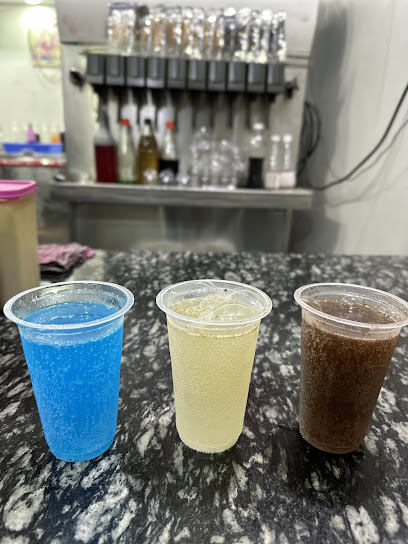
Natural soda &mocktails
Discover a refreshing escape at Natural Soda & Mocktails, Vadodara's finest cocktail bar offering a unique selection of sodas and mocktails for every palate.
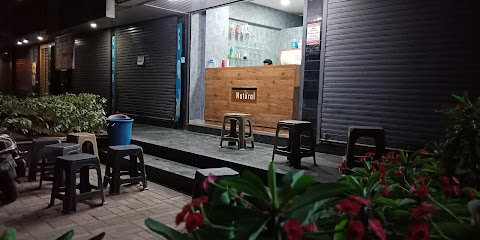
Kashmiri Soda Pub
Discover the lively ambiance and unique beverage offerings at Kashmiri Soda Pub, a top destination for tourists in Vadodara, Gujarat.
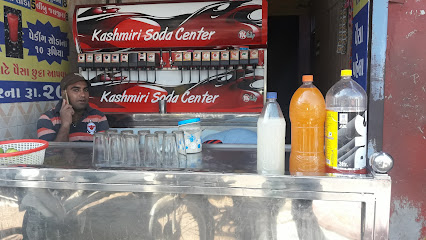
Magic Mocktails
Experience the magic of innovative mocktails in Vadodara's enchanting cocktail bar, perfect for a refreshing evening outing.
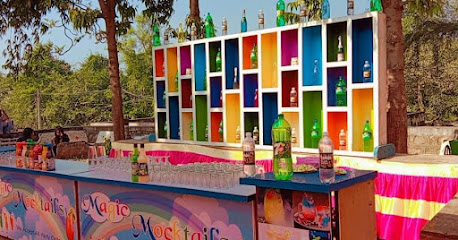
Bistro Buzz
Experience the perfect blend of elegance and flavor at Bistro Buzz, Vadodara's top lounge for culinary enthusiasts.
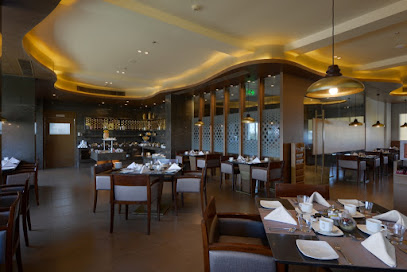
Hathikhan
Experience the lively nightlife of Vadodara at Hathikhan Bar, where local culture and friendly ambiance meet delicious drinks.
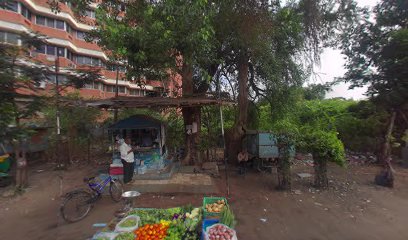
B. A. Mithawala & Co.
Experience the exquisite grilled cuisine at B. A. Mithawala & Co. in Vadodara, a haven for food lovers seeking authentic flavors and a cozy atmosphere.
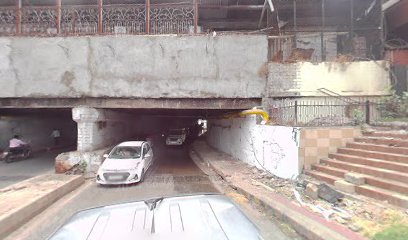
Krishna Sports
Experience the thrill of live sports in a vibrant atmosphere at Krishna Sports, Vadodara's premier sports bar for fans and tourists alike.
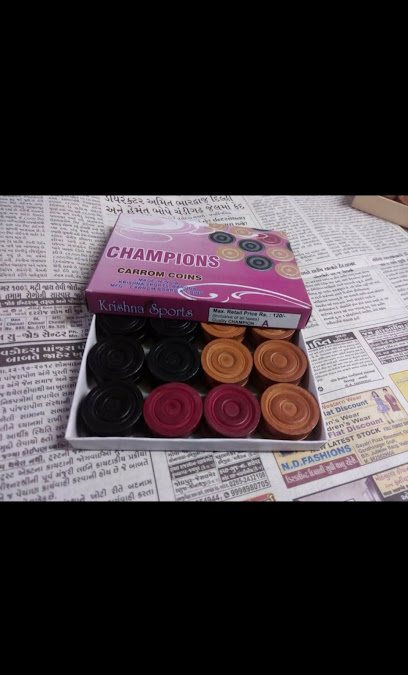
Gandhi soda shop
Discover the refreshing flavors of Vadodara at Gandhi Soda Shop, a local favorite bar offering a variety of delightful sodas and snacks.
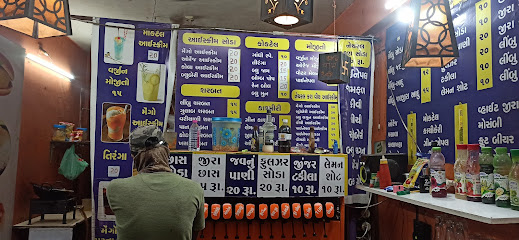
Sherdi Rass
Discover the lively ambiance of Sherdi Rass, Vadodara's favorite bar, offering a unique blend of local culture and refreshing beverages.
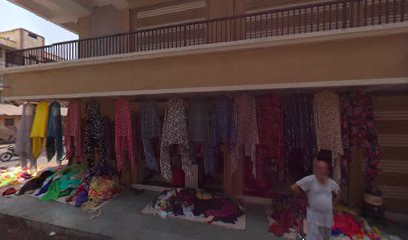
New Era
Discover New Era Sports Bar in Vadodara - where sports, great food, and a lively atmosphere come together for an unforgettable experience.
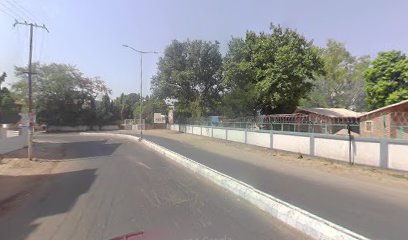
Local Phrases
-
- Helloનમસ્તે
[Namaste] - Goodbyeઆવજો
[Aavjo] - Yesહા
[Ha] - Noનહીં
[Nahi] - Please/You're welcomeકૃપા કરીને/ભલાઈ આપો
[Kripa kari ne/Bhalai apo] - Thank youઆભાર
[Aabhar] - Excuse me/Sorryમાફ કરજો
[Maaf karjo] - How are you?તમે કેમ છો?
[Tame kem cho?] - Fine. And you?સરસ. અને તમે?
[Saras. Ane tame?] - Do you speak English?તમે ઇંગલિશ બોલો છો?
[Tame English bolo cho?] - I don't understandહું સમજું નથી
[Hu samju nathi]
- Helloનમસ્તે
-
- I'd like to see the menu, pleaseકૃપા કરીને મેનૂ જોવું
[Kripa kari ne menu jovu] - I don't eat meatહું માંસ નથી ખાતો
[Hu mans nathi khato] - Cheers!આવજો!
[Aavjo!] - I would like to pay, pleaseકૃપા કરીને માને છું
[Kripa kari ne mane chu]
- I'd like to see the menu, pleaseકૃપા કરીને મેનૂ જોવું
-
- Help!મદદ!
[Madad!] - Go away!ચલો જાઓ!
[Chalo jao!] - Call the Police!પોલીસ કરો!
[Police karo!] - Call a doctor!ડૉક્ટર કરો!
[Doctor karo!] - I'm lostહું હરી ગયો છું
[Hu hari gayo chu] - I'm illહું બીમાર છું
[Hu bimaar chu]
- Help!મદદ!
-
- I'd like to buy...હું ખરીદવા માંગુ છું...
[Hu khareedva mangyu chu...] - I'm just lookingહું ફક્ત જોવું છું
[Hu fakt jovu chu] - How much is it?એનો ભાવ કેટલો છે?
[Eno bhav ketlo che?] - That's too expensiveએ ખૂબ મહંગો છે
[E khub mahango che] - Can you lower the price?ભાવ ઘટાડો શકો છો?
[Bhav ghataado shako cho?]
- I'd like to buy...હું ખરીદવા માંગુ છું...
-
- What time is it?કવી વાર છે?
[Kavi vaar che?] - It's one o'clockએક વાગ્યો છે
[Ek vaagyo che] - Half past (10)દસ વાગ્યો પસાર
[Das vaagyo pasaara] - Morningસવાર
[Savaar] - Afternoonબપોર
[Bapor] - Eveningસાંજ
[Saanj] - Yesterdayગઈકાલ
[Gaikal] - Todayઆજ
[Aaj] - Tomorrowઆવતીકાલ
[Aavatikal] - 1એક
[Ek] - 2બે
[Be] - 3ત્રણ
[Tran] - 4ચાર
[Char] - 5પાંચ
[Paanch] - 6છ
[Chh] - 7સાત
[Saath] - 8આઠ
[Aath] - 9નવ
[Nav] - 10દસ
[Das]
- What time is it?કવી વાર છે?
-
- Where's a/the...?એક/આ ... કઈ છે?
[Ek/Aa ... kai che?] - What's the address?સરનામું શું છે?
[Sarnamu shu che?] - Can you show me (on the map)?મુજબ દેખાડો (નકશા પર)?
[Mujab dekhaado (naksha par)?] - When's the next (bus)?આગળો (બસ) ક્યારે છે?
[Aaglo (bus) kyare che?] - A ticket (to ....)એક ટિકિટ (સુધી ....)
[Ek ticket (sudhi ....)]
- Where's a/the...?એક/આ ... કઈ છે?
History of Vadodara
-
Vadodara, also known as Baroda, was initially a small village called Ankottaka, located on the banks of the Vishwamitri River. It was situated in the fertile region of Gujarat, known for its agricultural prosperity. The city's foundation dates back to around the 9th century when it was established by the Hindu king Raja Chandan of the Dor tribe.
-
During the early medieval period, Vadodara came under the rule of the Chalukya dynasty. The Chalukyas, known for their patronage of arts and architecture, left a significant influence on the region. The city began to flourish as a center of trade and culture during this era.
-
In the 10th and 11th centuries, Vadodara was ruled by the Solanki dynasty. During this period, the city witnessed a surge in architectural and cultural developments. The Solankis were great patrons of Hindu temples, and many temples in and around Vadodara were built during their reign.
-
Vadodara came under the control of the Delhi Sultanate in the 14th century. It became an important administrative center for the Sultanate rulers. The city saw the construction of several mosques and other Islamic structures, blending Hindu and Islamic architectural styles.
-
In the 16th century, Vadodara became a part of the Mughal Empire under Emperor Akbar. The Mughals further developed the city, enhancing its infrastructure and promoting trade. The influence of Mughal architecture can still be seen in some of the city's historic buildings.
-
One of the most significant chapters in Vadodara's history began in the early 18th century when it came under the control of the Maratha Gaekwads. Maharaja Sayajirao Gaekwad III, who ruled in the late 19th and early 20th centuries, was a visionary leader who transformed Vadodara into a modern city. He established several educational institutions, libraries, and museums, laying the foundation for Vadodara's reputation as a cultural hub.
-
Maharaja Sayajirao Gaekwad III's reign is often referred to as the 'Sayaji Era.' He implemented progressive reforms in education, infrastructure, and social welfare. The establishment of the Baroda College (now known as Maharaja Sayajirao University of Baroda) in 1881 and the Baroda Museum and Picture Gallery are testament to his contributions to the city's cultural and intellectual life.
-
After India gained independence in 1947, Vadodara continued to grow as a prominent industrial and educational center. The establishment of various industrial estates and educational institutions attracted people from different parts of India, making Vadodara a melting pot of cultures and traditions. The city's rich heritage and modern advancements coexist harmoniously, making it a unique destination for travelers.
Vadodara Essentials
-
Vadodara, also known as Baroda, is well connected by air, rail, and road. The Vadodara Airport (BDQ) offers domestic flights and is located about 8 km from the city center. For international flights, the nearest major airport is Sardar Vallabhbhai Patel International Airport in Ahmedabad, approximately 120 km away. Vadodara Junction is a major railway station with trains connecting to major cities across India. The city is also well connected by road, with National Highway 48 passing through it.
-
Vadodara has a variety of transportation options including auto-rickshaws, city buses, and taxis. The city buses operated by Vadodara Municipal Corporation (VMC) are a budget-friendly option for getting around. Auto-rickshaws are widely available and convenient for short distances. App-based cab services like Uber and Ola are also operational in the city. For a more personalized experience, you can rent a car from multiple car rental agencies.
-
The official currency in Vadodara, and throughout India, is the Indian Rupee (INR). Credit and debit cards are widely accepted in hotels, restaurants, and shops. ATMs are abundant in the city, so withdrawing cash is not an issue. However, it is advisable to carry some cash, especially for small purchases and in markets. Digital wallets like Paytm, Google Pay, and PhonePe are also commonly used for transactions.
-
Vadodara is generally considered a safe city for tourists, but it is always wise to exercise caution. Avoid isolated areas after dark and be cautious of your surroundings. Areas like Sayajigunj and Nizampura are generally safe but be cautious in crowded places to avoid pickpocketing. Always use licensed taxis and avoid giving out personal information to strangers. Keep emergency contact numbers handy.
-
In case of emergency, dial 100 for police assistance, 101 for fire, and 102 for an ambulance. Several hospitals and clinics provide emergency medical services, including SSG Hospital and Bhailal Amin General Hospital. For minor health issues, pharmacies are abundant and easily accessible. Having travel insurance that covers medical emergencies is highly recommended.
-
Fashion: Do dress modestly, especially when visiting religious sites. Avoid wearing revealing clothing. Religion: Do respect local customs and remove your shoes before entering temples and mosques. Avoid touching or pointing at religious artifacts. Public Transport: Do be courteous to fellow passengers and offer your seat to the elderly or women. Don’t eat or drink on public transport. Greetings: Do greet people with a 'Namaste' with folded hands. A handshake is also acceptable in more formal settings. Eating & Drinking: Do try local delicacies and street food but ensure it is from a hygienic source. Don’t refuse food or drink when offered as it can be considered impolite.
-
To experience Vadodara like a local, visit the city's vibrant markets such as Mandvi and Lehripura Gate for local handicrafts and street food. Spend an evening at Sayaji Baug, a sprawling garden with a zoo and museum. Engage with locals at traditional Gujarati Thali restaurants to savor authentic cuisine. Don’t miss visiting the Laxmi Vilas Palace, a symbol of Vadodara’s rich history. For a cultural experience, attend a performance at the Vadodara Fine Arts Academy.
Trending Landmark in Vadodara
-
Sayaji Baug Zoo
-
Laxmi Vilas Palace
-
Mandvi Gate
-
Kirti Stambh
-
Baroda Museum & Picture Gallery
-
EME Temple
-
Vidhyadhar Vaav (Stepwell) at Sevasi
-
Akota Bridge
-
Nimeta Garden
-
Maharaja Fateh Singh Museum
-
kirti mandir in vadodara
-
Meer Nawab Shah Saiyed Qutubuddin Tomb
-
Raopura Tower
-
Kamati Baug Vadodra
-
Tambekar Wada
Nearby Cities to Vadodara
-
Things To Do in Ahmedabad
-
Things To Do in Rajkot
-
Things To Do in Udaipur
-
Things To Do in Nashik
-
Things To Do in Aurangabad
-
Things To Do in Mumbai
-
Things To Do in Pune
-
Things To Do in Jodhpur
-
Things To Do in Bhopal
-
Things To Do in Pushkar
-
Things To Do in Ranthambore
-
Things To Do in Jaisalmer
-
Things To Do in Jaipur
-
Things To Do in Hyderabad
-
Things To Do in Nagpur

















